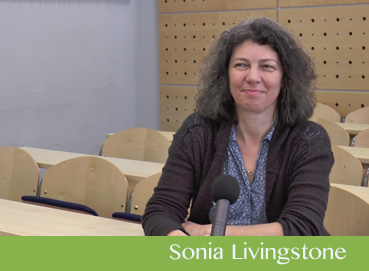COST ACTION IS0906
Transforming Audiences,
Transforming Societies

What are some of the key issues and challenges for the future?
The current changes of the media and communication environment intersect with broader changes in society, which together induce transformations of audiences. Each field of research represented in the COST Action IS0906 has its own view on those transformations and the key issues and challenges they raise for scientists and other stakeholders.
Acces to, use of and trust in the media
-
Building a trust relationship with the media and the institutions is important for the functioning of the society. - Liina Puustinen
"Trust is a fundamental thing for societies to function in general. And trust in persons, when we are communicating with another person, is very important. We need to build a relationship of trust. And also trust in institutions, trust in media, in authorities, in politicians is very important for the functioning of society and for democracy as well."
-
Researchers should have a better understanding of the lack of trust in the media and try to create better media. - Lars Nyre
"This action gives a very good foundation for understanding better how people think and feel in relation to the analysis of the content that all the media provide about reality. And there are problems in this field: there are good reasons not to trust, there are good reasons not to be confident. I think researchers of our type should always have the critical approach, making sure that we have a more detailed and empirical understanding of what is going on. That is our main obligation. I would like also to suggest that media researchers have always studied the media at the distance. We always studied the things after they happened: after Facebook has emerged, we have studied it; after a certain new story has been going on, there are articles coming out about it. However, media scholars should also be more proactive. But it seems it is not obvious that media scholars are trying to create better media for those purposes that we have identified as important in the society."
-
Academics should create bridges with their stakeholders and they should better communicate with the journalists and the public. - Cristina Ponte
"After debates and after discussions, we thought that it is better to think about making bridges, building bridges. It is also better to know that stakeholders have their own concerns, their own needs and we need to promote a real dialogue between academics and stakeholders. We have common interests and when we conduct a research, it is important to involve the stakeholders since the beginning of the work, instead of saying we do the research and then we give them the results. Their needs should also be considered in the design of the research. Academics should also better communicate with the journalists and with the public."
-
We need to continue the research to make recommendations for policy uses and for a better public debate. - Klaus Bruhn Jensen
My main suggestion would be to make sure that we do follow up our so called longitude on studies over time. We actually followed up what has been initiated by the COST action and we have a good basis on which we will do better researches in the future but also make recommendations for policy uses and for better public debate. So I think more researches are needed.
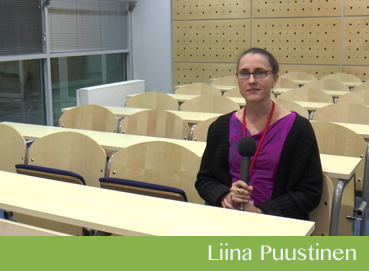
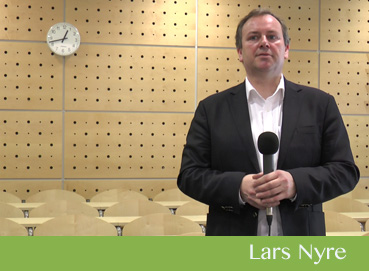
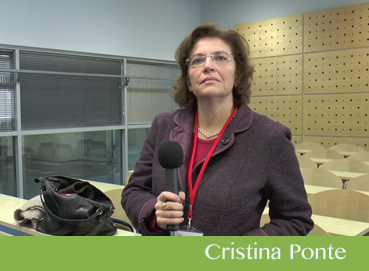
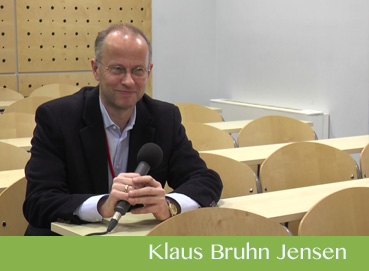
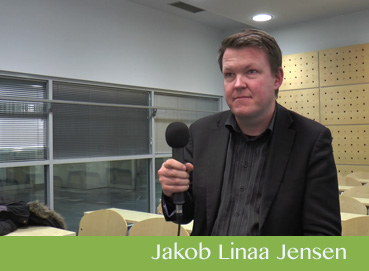
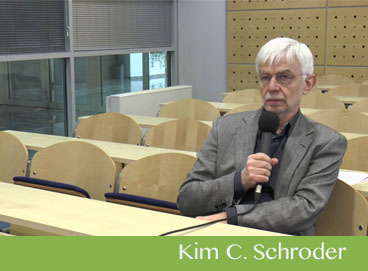
Audience research methodologies
-
We should develop cooperation between the stakeholders and the researchers because each of them bring interesting data and perspectives. - Jakob Linaa Jensen
In the future I think that audience research should be more focused on following the consent rather than focusing on specific media sides. For the stakeholders, I think that they can get not at least commercial operators and media companies, they can get a more critical perspective from us researchers, we can contribute to a perspective dealing with mere facts beyond numbers and statistics. Moreover, some of the external stakeholders have a lot of interesting data we can help to enlighten. So, for the future, cooperation between stakeholders and researchers could be a very fruitful one.
-
Do not hesitate to mix methods of research to discover different perspectives on the reality of audiences. - Kim C. Schroder
"In the world of corporate slogans, there is one slogan that many people know. It is produced by the company Nike and it is called “Just do it”. We have learnt two things from this statement. One has been to not hesitate when we are doing the research designs to embrace different methods and to go out there, do some field work and try to do that using different methods. The other thing we have learnt has been to also reflect on more how we are doing it when we mix the methods because you should not just go ahead and mix methods without knowing what you are doing. I think one of the crucial concepts we have explored in this action in the area of mixed methods has been the notion of complementarity of methods. Because each method will deliver particular perspective on the reality of audiences and when we have collected the different perspectives through the different methods, then we have to be reflexive about how these different kinds of findings complement each other."
Identities and belongings
-
Academics and non-academics should continue to dialogue because they can learn from each other. - Nicoletta Vittadini
"According to the work we realized during the COST action, I think it is very important that academics and non-academics continue to dialogue and to work together. Furthermore, I think academics should take into account in their researches some main questions coming from the stakeholders and the non-academics. In the same time, the stakeholders should take into account some critical issues that emerge from academic studies. Indeed, these critical issues can be interesting for them who need to understand audiences, to work with audiences and to dialogue with them."
-
We should develop social science research to fill the gap between the production of innovations and their contribution to the general quality of life. - José Manuel Damasio
"I think that this COST action clearly showed that social sciences or media studies can have a bridging role in trying to fill some of the gaps between the production of innovations, their diffusion in the society, the understanding of their actual effects and their contribution to improve the general quality of life. So I think this COST action not only helped the researchers in strengthening their network but it also showed that social sciences can have a clear role in shaping the future agenda for research in Europe."
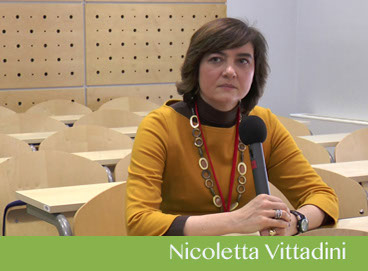
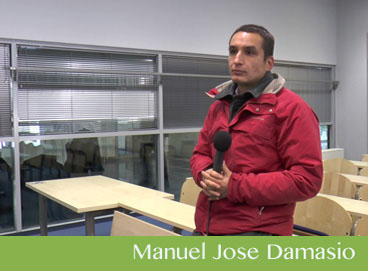
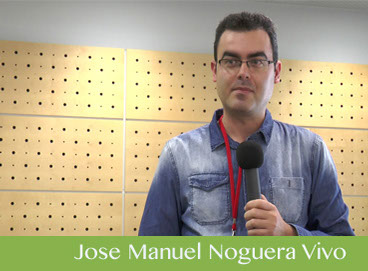
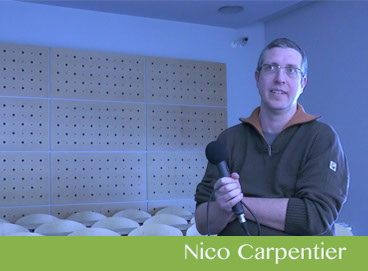

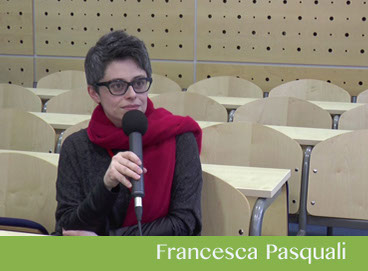
Participation in/through the media
-
We should build multidisciplinary teams working on research projects that are very connected to the real needs of people. - Jose Manuel Noguera Vivo
"I think we have to study all the topics related to participation in a more holistic, multidisciplinary way because, more than ever, we have seen a landscape, a media scenario, in which we cannot study separately the different audiences. For instance, we cannot study separately the audiences of journalism, of media entertainment and of the media industry. Everything is a kind of mix at the same time. So, we need multidisciplinary teams composed of people developing research projects that are very connected to the real needs of people."
-
The studies about participation in the media must be defined more clearly in the future. - Nico Carpentier
"First of all, we need to be more careful. When we are studying participation, too many people have done too many different things and they are not very clear about what they are exactly doing. So clarity is one of the future topics in the field of participation in the media. Secondly, I think that at the same time we need to look more closely at a number of related processes. What the working group on audience interactivity and participation has started to do is to look at the relationships between interactivity and participation, not only studying participatory processes but also processes that relate to interaction. Thirdly, I think we need to start looking at a series of fields and see how interaction and participation are played out in the particularity of these fields. Journalism is not the same as the medical field where participation also plays a role or is not the same as the field of arts where participation also plays a role. So, trying to figure out how these participatory processes work in different fields is increasingly important because we can learn from colleagues working in these other fields. Then maybe we will be able to say something about the specificity of media participation and I think these collaborations between the different fields must be done in the future."
-
Participation is more than an interaction and should be regarded as a possibility impacting on power relations. - Peter Dalhgren
When we juxtapose this idea of participation with democratic theory and the media landscape, we become rather insistent on seeing participation in a more robust way than it is often the case.
-
Remember what audience matters - Francesca Pasquali
"I recommend remembering what audience matters. It probably matters even more than the way we talk about audiences to our students, to academics and to stakeholders and also to audiences themselves. Indeed, some audiences do not consider themselves as audiences and they consequently miss the opportunities related to the belonging to an audience and to not be an isolated person."
Media literacy
-
Studying the children and the young people audiences is crucial for the future. - Sonia Livingstone
"I think the way the new media keep changing is going to keep us reframing our questions and our research methods. From my own point of view, the young people are neglected: there are a lot of talks about audiences as if everyone is adult but young people are not adults. Children and young people are a crucial segment of our society. Many people are trying to address their needs: parents, teachers, welfare workers, industry also and so I think as an area where we really see the changes in how audiences are engaging with media, keeping a strong work on children and young people is going to remain crucial in the future."
